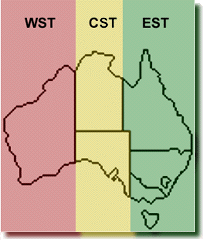
Australia offers a high standard and variety of accommodation to suit different budgets and needs. Institutions provide students with assistance in finding accommodation. Student notice boards often advertise rooms, apartments, and houses for rent or to share with other students. It is essential that, prior to arriving in Australia, students book temporary accommodation for at least the first few days.
Some options and approximate costs are:
Education institutions ensure that homestay families are reputable and that accommodation is of a reasonable standard. This type of accommodation gives international students access to the Australian lifestyle in a natural and friendly way. In many cases students are treated like a member of the family.
Full board
Full board is similar to homestay but less formal. Students negotiate personally with the landlord the standard of accommodation and meals they require.
Boarding school
Many private secondary schools provide accommodation, meals and laundry services for international students.
Hostels and guest houses
Hostels are usually run by organisations such as Youth Hostels, YM and YWCAs. Students share kitchen and bathroom facilities.
Share and rental accommodation
Students are often keen to share accommodation with fellow students. They advertise on student notice boards and in the classified advertisement section of newspapers. All members of the household are responsible for cooking and cleaning. Students may have to provide their own furniture.
When renting a house, apartment or bedsitter, landlords require rent to be paid in advance and payment of a security bond equal to one month¨ªs rent. The bond is used to repair any damage done to the property by the tenant. If no damage is incurred, the bond is returned when the lease expires. Only people over 18 years of age can sign contracts.
Own home
The families of some international students own homes in Australia. Students in these cases often choose this option. A few international students own their own homes in Australia.
University apartments
Postgraduate and married students have access to this type of self-contained, fully furnished accommodation available within the university system.
Colleges
Colleges provide accommodation with meals. They are a more expensive alternative. Cleaning and household tasks are undertaken by the college. They also provide sporting and social facilities, tutoring and libraries. Some Australian students live in the colleges, however, international students are in the majority.
Halls of residence
Halls of residence are located on or near university campuses and are
cheaper than colleges. International students find them an attractive alternative.
Students usually have meals and some cleaning services provided. Only fulltime
students are accepted. Students need to apply early because of the high
demand for places.
![]()
The importation of fresh or packaged food, fruit, eggs or egg products, vegetables, seeds, cultures, plants and plant products is strictly controlled. There is up to 6 months quarantine for all domestic animals. There is a large range of fruit and vegetables available at Australian produce markets. Students should have no difficulty in finding the foods they are used to from their homeland. As well, they have the opportunity to sample the foods of many other cultures while in Australia.
There are elegant restaurants or a typical Aussie pub. Ethnic
restaurants offering cuisines from all around the world are popular. Good
food at reasonable prices can be found at bistros or cafes. There are also
many fast food chains and take away food stores.
![]()
The electrical current in Australia is 240/250 volts AC, 50 cycles.
The Australian three pin plug is unlike those of many other countries and
is extremely safe. Adaptors are usually required for most foreign appliances.
A transformer may be required if you bring an appliance from overseas that
operates on a different voltage.
![]()
Australia has an extensive public transport system that includes trains, buses, tramways, ferries, two major national airlines and a number of regional airlines. Metropolitan areas are divided into zones and your ticket type and cost depends on which zone you are going to travel in and for how long. Tickets can be bought at train stations, on buses and trams and at newsagencies.
Tourist students may drive in Australia on a valid overseas driver¨ªs licence but if the document is not in the English language the visitor must carry a translation with the permit. An international driving licence is not sufficient by itself.
Metered taxicabs operate in all major cities and towns. You will
find taxi ranks at transport terminals, main hotels or shopping centres
or you can hail taxis in the street. A light and sign on the roof indicates
if a cab is vacant. There is a minimum ?flagfall¨ª charge then a charge
per kilometre travelled. Taxi drivers do not expect to be tipped.
![]()
Shopping hours vary from state to state but generally big department
stores are open from 9.00 am until 5.30 pm Monday to Friday with late night
shopping either on Thursday or Friday until 9.00pm. Some supermarkets are
open 24 hours a day, 7 days a week. Some states have Sunday trading with
major stores opening from 10.00 am
until 4.00 pm.
![]()
Public pay phones accept a variety of coin denominations and Phonecards.
Phonecards are pre-paid for use in public pay phones and can be bought
at a large number of retail outlets in denominations of A$5, A$10, A$20
and A$50. Credit phones take most major credit cards, such as American
Express, Visa and Diners International and can be found at international
and domestic airports, central city locations and hotels.
![]()
There are three time zones in Australia:

It is not customary to tip in Australia. There may be an occasional
exception where the service provided has been exceptional. In these situations
it is a matter of individual choice.
![]()
Knowing about Aus | Specific
Details
Listed of Universities | Studying
in Aus